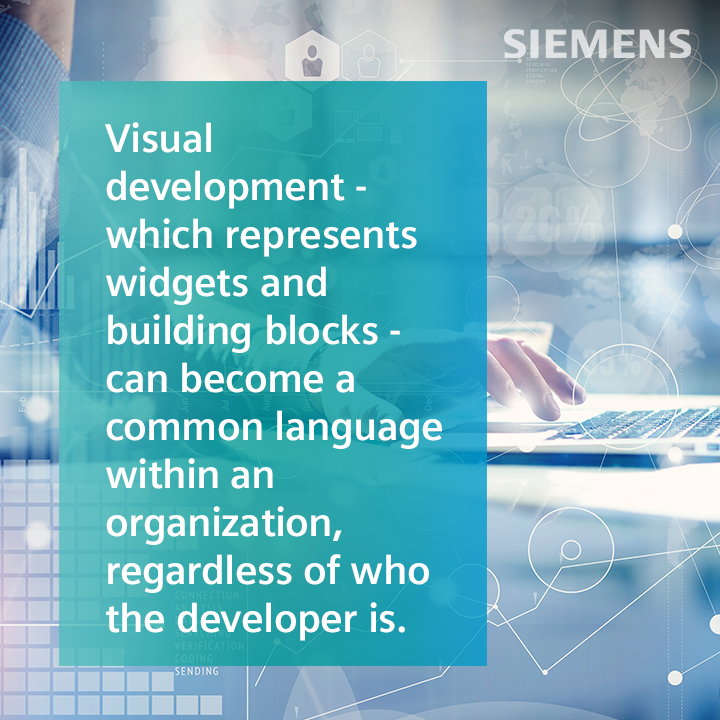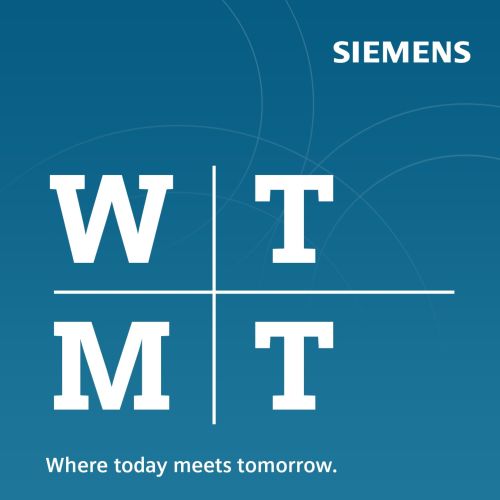How low-code unifies makers with visual development, part 2 – A WTMT special podcast mini-series

In the last episode, we talked about how software is becoming nearly ubiquitous in modern society. As software continues to do more for us, both personally and professionally, it also becomes more complex. Growing software complexity certainly makes the job of software developers more difficult, but it also makes the software harder to understand by non-developers. The result is a growing gap in understanding between software developers, organizational customers and end users.
This makes it harder for customers or end users to communicate their needs to IT organizations with any specificity or clarity. Therefore, IT organizations have trouble creating custom applications to solve the unique problems their customers and users are facing. With no end to the growth of software complexity in sight, opportunities for technical liaisons are on the rise to break through the mounting software language barrier. Low-code development solutions provide a perfect environment for software developers and users to communicate.
How low-code brings makers together
Low-code app development platforms, like Mendix™, use visual development environments to help make sense of software complexity. Through the universal language of icons, they make it easier for developers to communicate with businesses. The process starts with widgets and drag-and-drop building blocks so that the citizen developer can create a prototype of what they want. From that model, developers can understand exactly what the customer needs, and then build a high-quality custom application from a heightened level of understanding.
Back on the show are Mendix experts Erno Rorive, a Senior Product Manager; Jakob Schillinger, a Technology Evangelist; and Dina Durutlic, a Product Marketing Manager.

In this episode, we’ll talk about the magic of low-code, how it helps ease the communication process between businesses and IT, and how companies can leverage this technology to save time and increase their bottom line. We’ll also share some real-world examples of the astonishing benefits that low-code has provided for customers around the globe. You can listen to the second episode in our low-code mini-series below:
How Low-Code Unifies Makers with Visual Development
When people ask you what you do for a living, what if your answer was “I help break the language barrier”! Sounds impressive, right?
Well, there might be no better time to consider a career in low-coding. As technology continues to thrive, complexity increases. That means the language barrier between the developer and the people who can benefit from the technology grows wider. The opportunities for technology liaisons are on the rise, and that’s where Mendix comes in.
Through the universal language of icons, they make it easier for developers to communicate with businesses. The process starts with widgets and drag-and-drop building blocks so that the citizen developer can create a prototype of what they want. From that model, developers know exactly what the customer needs, and they can work their tech magic from a heightened level of understanding.
Back with us today are Mendix pro’s Dina Durutlic, Product Marketing Manager, Erno Rorive, Senior Product Manager, and Jakob Schillinger, Technology Evangelist.
In this episode, we’ll talk about the magic of low-code, how it helps ease the communication process between businesses and IT, and how companies can leverage this technology to save time and increase their bottom line. We’ll also share some real-world examples of the astonishing benefits that low-code has provided for customers around the globe.
Some Questions I Ask:
- Will Mendix ever replace solutions that at the moment require programs? (6:07)
- Which markets can benefit from this technology? (7:50)
- How does the digital twin connect to Mendix? (10:04)
- How are customers using Mendix? (11:54)
- How can people break into the industry? (17:42)
What You’ll Learn in This Episode:
- The problem Mendix set out to solve (2:42)
- A recap of Low-code (3:09)
- How the digital twin fits in (9:40)
- The app that yielded a 2,400% return on investment (13:26)
- Why Low-code is an ideal solution for warehouses (17:02)
Resources:
Connect with Dina Durutlic:
Connect with Erno Rorive:
Connect with Jakob Schillinger:

Erno Rorive – Senior Portfolio Manager Ecosystem Services at Mendix
Working for Mendix since 2014, Erno has become an expert in low-code, technology and industry. As a Senior Product Manager at Mendix, Erno covers a broad spectrum of initiatives across both organizations, as Mendix in now part of the Siemens family. He focuses on the products of both portfolios and on their Go-To-Market.

Jakob Schillinger – Technical Evangelist at Mendix
As a Technical Evangelist for the Marketing team at Mendix, Jakob drives digitalization at Siemens by ideating application portfolios for different business and operating units. He guides portfolio implementation through app factories that help making value return of investment plan- and executable, catalyst business and IT agility and make organizations future-ready. Jakob uses his insights into the adoption process to make people in Siemens and beyond aware of generated value.

Dina Durutlic – Product Marketing Manager at Mendix
Dina specializes in crafting and elevating the Mendix message and is passionate about delivering value to customers and prospects. Throughout her career she has worked with cutting edge technologies that give organizations a competitive edge in their respective industries.

Ginni Saraswati – Host
Ginni Saraswati hosts and produces Where Today Meets Tomorrow. She is CEO of New York City-based Ginni Media, an award-winning journalist, multi-award nominated podcaster, and veteran on-air radio host/personality from Melbourne, Australia.

Where Today Meets Tomorrow Podcast
Amid unprecedented change and the rapid pace of innovation, digitalization is no longer tomorrow’s idea. We take what the future promises tomorrow and make it real for our customers today. Welcome to “Where today meets tomorrow.”
